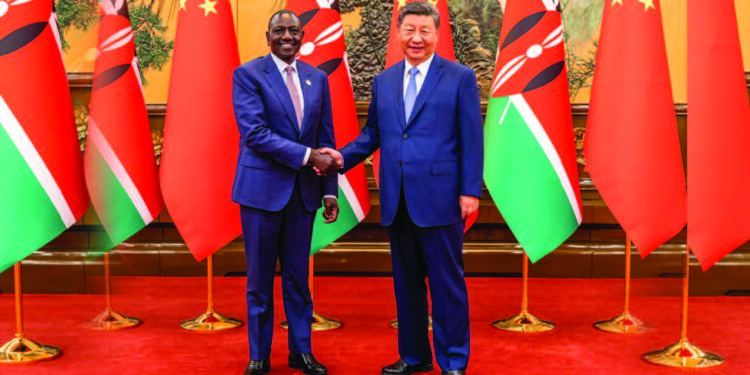Kenya and China have intensified bilateral discussions to expand the presence of Kenyan tea in the vast Chinese market. This follows President William Ruto’s recent state visit to China, which paved the way for high-level engagements aimed at increasing trade volumes, particularly in the tea sector. A key meeting on Tuesday brought together President Ruto and Mr. Zhang Chaobin, Chairman of Benny Tea Industries—one of China’s top tea production and retail firms—to explore how Kenyan tea can secure a stronger foothold in the Chinese market.
Benny Tea Industries is a major player in China’s tea value chain and specializes in refined orthodox and specialty teas, which aligns closely with Kenya’s current focus on growing and exporting high-value tea varieties. During the talks, Mr. Zhang expressed strong interest in sourcing his company’s annual orthodox tea requirements directly from Kenya. This signals a critical shift in market strategy, positioning Kenya to become a primary supplier of high-end teas to Asia’s largest consumer economy.
The engagement was attended by representatives from Kenya’s Ministry of Agriculture, the Kenya Tea Development Agency (KTDA), and the Tea Board of Kenya. Their involvement highlights the Kenyan government’s commitment to strengthening the tea value chain from farm to export, while ensuring policies are aligned with President Ruto’s broader strategy to grow the agricultural sector through market diversification and value addition.
Kenyan tea farmers are poised to benefit immensely from the expanding Chinese market. With direct access to a billion-plus consumer base and partnerships with Chinese retail giants, farmers are likely to receive better prices for their produce, especially for specialty and orthodox teas, which fetch higher premiums than bulk CTC (Crush, Tear, Curl) teas. The new demand could also stimulate job creation and revive tea-growing regions that have been struggling with declining global prices.
In a significant development, Benny Tea Industries pledged to invest in modern orthodox tea production factories across select Kenyan tea-growing counties. This move is expected to enhance local processing capacity, reduce post-harvest losses, and boost the quality of exports. Such investments will also introduce technology transfer, improve packaging standards, and help Kenya align its production with international market expectations.
Beyond the tea sector, Kenya is eyeing broader trade cooperation with China, including increased exports of coffee, avocado, macadamia, and other agricultural products. The renewed diplomatic push underscores Kenya’s intention to balance its trade deficit with China by exporting more goods rather than relying heavily on imports or debt-based projects.
The Kenyan economy stands to gain substantially from this evolving partnership. Expanded tea exports could inject significant foreign exchange into the economy, stabilize rural incomes, and strengthen Kenya’s position as a global leader in quality tea production. A vibrant tea trade with China will not only deepen bilateral ties but also elevate Kenya’s profile in the competitive Asian market.
Accompanying the Fujian delegation was Ambassador Lynette Ndile, Kenya’s Deputy Head of Mission in China, underscoring the diplomatic momentum behind the initiative. With strategic government backing, industry alignment, and investor commitment from Benny Tea, Kenya’s tea sector is set for a transformative leap, anchored on expanded access to one of the world’s fastest-growing tea markets.










